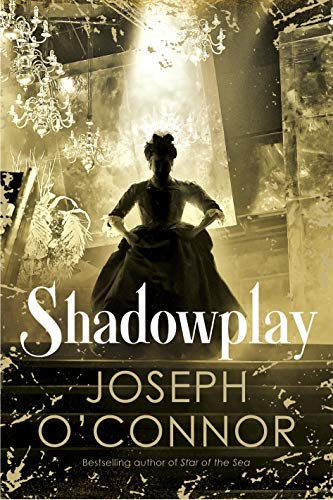Shadowplay
At an essential level, this novel deals with the Irish writer Bram Stoker, and his relationships with the actress Ellen Terry, and Henry Irving, the actor, between the later 19th and early 20th centuries. But it is much more than this. Using the literary device of a sheaf of Stoker’s papers, diary entries and interviews given to Ellen Terry by the writer, this arrangement initially makes some demands upon the reader in following the plot. Bram Stoker and his new wife, Florence Balcombe, travel to London from Dublin, where Stoker is to be a general manger of Irving’s newly-refurbished theatre, the Lyceum. Irving is a temperamental, mercurial and thoroughly frustrating man, which makes for occasionally tempestuous relations during their long professional relationship. Stoker struggles with his sexuality, while he battles to find literary success and wrestles with the succubus that will become his defining work, although only years after his death – he never knew literary renown. It is a London in which the population are terrorised by the actions of Jack the Ripper and where the trial and conviction of Oscar Wilde sends shockwaves throughout the necessarily hidden gay community.
The story is narrated through rich, poetic language, observed by the penetrating eye of an artist, bringing late 19th-century Victorian London and the Lyceum theatre to a stunning, fizzing life. There are occasional elements of fantasy, which do not detract from the story’s appeal and focus. It is an absorbing tale.










